Hello and Assalam O Alaikum. We were assigned a task to conduct an activity on Sustainable Development Goals as a part of our Social Action Project. The main purpose of this activity was to create Awareness among student inside university premises about SDGs and Pakistan progress regarding the fulfillment of SDGs which we have to achieve till 2030 and also how Numl is contributing towards SDGs
To perform this task several activities were conducted a group of two students was form to work on each SDGs. We were assigned to work on SDG-16 ( Peace Justice and strong institutions)
Group Members:
Raja Wajahat
Mansoor Ali
SUSTAINABLE DEVELOPMENT GOALS:
Sustainable Development Goals also known as Global Goals were made to Achieve more sustainable and comprehensive and durable future for all. These Goals were form by UN ( United Nations) in 2015 as a universal call to action to face global challenges faced by Humanity and Environment and to ensure that by 2030 all people enjoy peace and prosperity. These 17 Goals address the global challenges our community is facing and aim to combat these Challenges collectively and inclusively to make a better and safer world for our future generations.
Sustainable Development Goals are urgent call to action for all counties (develop or developing) they are for all. Sustainable Development Goals comprises of 169 targets and progress towards these targets is agreed to be tracked by 232 unique indicators.
These 17 Goals are:
Goal 1: No Poverty
Goal 2: Zero Hunger
Goal 3: Good health & Well being
Goal 4: Quality Education
Goal 5: Gender Equality
Goal 6: Clean Water & Sanitation
Goal 7: Affordable and Clean Energy
Goal 8: Decent Work & Economic Growth
Goal 9: Industry Innovation & Infrastructure
Goal 10: Reduce Inequalities
Goal 11: Sustainable cities & communities
Goal 12: responsible Consumption & Production
Goal 13: Climate Action
Goal 14: Life Below Water
Goal 15: Life on Land
Goal 16: Peace Justice & Strong Institutions
Goal 17: Partnership to achieve the goal
These are the 17 SDGs which are need to achieve before Year 2030.
Importance of SDGs in Pakistan:
Pakistan was the first country to adopt SDGs at its own National Development Policy through unanimous national assembly resolution in 2016. Sustainable Development Goals support units has also been established at federal & provinancal level with the Planning institution to guide SDGs implementation and monitoring its progress
In 2018 the government of Pakistan designed and approved a national SDGs framework that incorporate a national vision to prioritise and localise SDGs focus of government is on main streaming SDGs. Ensuring strong monitoring and reporting on SDGs ensuring public financial allocations are aligned to SDGs and alternative financing modalities are being explored and to benefit from use of technology to accelerate the progress towards SDGs.
If Pakistan sincerely commits to achieve these SDGs till 2030 then Pakistan will be able to join the league of upper middle class countries by 2030. Since pakistan is a developing nation with a potential of
64% youth. If we use our all resources effectively in right direction Pakistan can become a progressive nation by 2030.
Progress of Pakistan Regarding SDGs:
According to Sustainable Development report 2021. Pakistan with an overall index score in 2021 is 57.7% means that the country is an average 57.7 on the way to the best possible outcomes across the 17 SDGs. This score is 1.5pc higher than the country's score in 2020. Pakistan is categories in the east and south asia region that comprises 21 countries including China, Singapore, India etc pushing the regional score upwards compared to 2020. Pakistan performance has been increased by 3pc in the region.
Despite the covid 19 pandemic global pushbike Pakistan's SDGs global rank is 129 (out of 193) in 2021. Compared to its neighbours, india's rank declined by three from 117 to 120 between 2020 to 2021
Despite the overall improvement in thr score in term of Goal achievement Pakistan's performance is only on track against goal-13 (Climate Action).
10 billion tree tsunami initiative was acknowledged world wide. All other Goals progres is either moderately improving or stagnating and worsening in case of Goal 15 (life on land)
According to the Pakistan bureau of statistics Covid-19 specifc survey 2020 27.31 million working population was effected related to Goal-1 (End Poverty) & Goal-2 (Zero Hunger) and SDG-8 (Decent Work & Economic Growth) 20.6M people could not work during the first wave of the pandemic where as 6.7M people said that their income was declined. As a cope up mechanism half of the household reduced their non-food expenditures and 74pc of thr informal workers were effected
The government came up with an Rs 1.24 trillion stimulus package to boast the overall economic situation and especially to reduce the deadly impact of Covid-19 pandemic on SDG-1 (End Poverty), SDG-2 (Zero Hunger) & SDG-8 (Decent Work & Economic Growth). The government tried to handle the effects of pandemic with diverse Strategies including including smart lockdown along with the rollout of of vaccination and continuing of Ehsaas programme.
Government has taken number of steps to keep the SDGs in line. Covid 19 was a global setback that stagnate our improvement but Pakistan has dealt with this pandemic quite effectively strategies which are being acknowledged globally in different international reports.
The Health Card was one the great imitative by government of Pakistan during this period and it is also considered as one of the largest imitative taken on health by any government all over the world it is been predicted that through this Health card 11 SDGs can be met.
Recommendations:
We think Government need to push more sustainable and practical measures are required towards achieving these 17 goals till year 2030. There are alot of loopholes existing in our system that are needed to be address. According to reports Pakistan Rank 153 out of 156 countries on the index of global gender gap 2021. Corruption rank in pakistan increased from 124 in 2020 to 140 in 2021 with the score of 28/100. Pakistan Rank 140 in world on water and Sanitation 142 in drinking excess to clean water.
According to the latest figures the under 5 stunted rate in the country is as high as 44% the third highest rate in the world with stunted prevalence being slightly higher in male children (48%) than in female chliden (42%).
All of these numbers are alarming and must be dealt effectively with concrete measure. These statistics shows that there is alot that is needed to be done towards attainment of these Goals till year 2030.
Progress made by NUML:
National University of Modern Languages is also playing a vital role in contributing towards Sustainable Development Goals. Numl keenly focusing on SDGs and is very determinent to work on these Goals with practical measures. It not only restricted to provide student with quality education which itself is a goal of SDGs but it also focusing on fulfilling the other Goals as well.
To support the SDG-16 (Peace Justice & Strong Institutions) different polices and measures are in place to fulfill the essence of Goal-16 of the SDGs
Policy for University Measures:
Engagements of students and local stakeholders through active participation in connection with UN SDGs.
The university governance measures look at activities around elected representation of university stakeholders on the governing body as well as policy and processes to involve to involve local non-unversity stakeholders. Numl has this policy to provide policies and programmes to engage students and local stakeholders through active participation
In 2020 to proficiently manage and run the affaires of university. Rector Numl Maj. General Mohammad Jaffer HI(M) (Redt) took a big step to restructure the university Forming Divisions. Office of Research innovation and Commercialization was assigned this task to propose structure in context of legal framework. The office played a vital role in planning and getting approvals from Board of Governors
From December 2020, Unniversity started Functioning according to the new structure of Divisions with relevant departments and branches with respective Pro-Rector, deans and directors heading them
This framework helped in making the institution more effective and vibrant in its duties. All these policies prove to be a stepping stone towards attainment of SDG 16 (Peace Justice and strong institutions)
NUML SDG Marathon Week:
Dr. Athar Rashid our Social Action Project Lecturer assign us to Observe NUML SDG Marathon Week in University and conduct different activities in this regard.
Following are the activities we Conducted
Online Webinar:
To give students awareness and brief overview of Sustainable Development Goals and Specifically about Goal-16 (Peace Justice & Strong Institutions). We Conducted an online webinar in which we highlighted Pakistan performance towards achieving of SDGs and how by fulfilling these 17 Goals Pakistan become a progressive and prosperous nation.
We also highlighted the problems Pakistan is facing towards fulfilling of these Goals. Specifically about Goal-16 what we are lacking in our Justice system. According to the World justice project's Rule of law index 2021 Pakistan is among the lowest ranking countries in its adherence to the rule of law. Pakistan is at 130th out of 139th countries. This shows how far we are in context of peace justice and strong institutions. Alot is need to be done for the fulfilment of SDG 16 in Pakistan
During our Webinar 26 students joined the session from different Universities in which 15 students joined from Numl, 4 students were from Comsats 2 students were From NDU, 3 students were from Islamic University 2 students were from Bahria University. We also took had a Questinaire Session at the end in which we try to took students Point of view about Goal-16 of SDGs in Pakistan in which majority the students suggested that Pakistan has a discriminatory Justice system in which there is no meritocracy Big fish's get away from accountability whereas poors are keep on suffering in Pakistan.
Awareness Drive/ Pamphlets Distribution:
The second activity we conduct inside the university premises. We distributed Awareness brouchers among students and conducted interviews with students Regarding Goal-16 of SDGs.
We reached out to 40 students and and cover 5 Deparments that includes IR department, Mass communication Development, GPP Department, English Deparment and Peace and conflict Studies Deparment.
Following are the questions we asked:
What is Sustainable Development
What do they know about Sustainable Development Goals
Are you familiar with Goal-16 of SDGs
What do you think about the Justice System of Pakistan, it is good or bad?
What reforms do you suggest to improve the Justice system of Pakistan
These were the questions we raised while conducting interviews in which majority of them were familiar with the name of SDGs but very few knew about why they in place.
Similarly to the best of my knowledge no one knew what is Goal-16 of SDGs until we presented them with the brochure.
Talking about Justice system in pakistan Everyone solely agreed that Justice system in pakistan is very compromising and in very bad shape.
At Last referring towards reforms few of the suggested that there is a dire need of judicial reforms in pakistan and one of the students share the statistics with us according that there are 20 lac pending cases in Pakistan. ( which we verify after appox 2,159,655 pending cases in Pakistani courts)
Further he suggested that Judicary should work according to the law and political influence in courts hearings and verdict is mainly the core
reason behind weak Justice system in pakistan.
AWARNESS DRIVE :
Our Experience:
Our whole experience during Numl SDG Marathon Week was all about making interaction and fellowship with students of various domain. First and foremost it helped us understand how important Sustainable Development Goals are for Pakistan when we studied them in detail and we came up to an understanding that by just fulfilling these Goals Pakistan can become a much better and progessgive country because the road map and guidelines to achieve these goals are also been mentioned in UNDP website. We also learned several skills while performing this task such as Time Managemet, Logo Making, and most importantly communication skills which helps us to boast up our confidence while interacting with students.
Conclusion:
To improve our Justice system and maintain Peace its is very important to make our institutions strong and Empowered. If our institutions are strong and People running them are credible and take decisions on Merit without any Political pressure by doing that I think we can make a very good progess towards achieving Goal 16 of SDGs.
Judicial reforms are the need of hour to make our Justice system effective. Pending cases are need to be hear and verdict should be given on minimum time.
Numbers of judges and courts should be increased special courts should be established for dealing with cases that are special in nature to speed up the process of Justice. Because for the population of 225 Million country less than two lac are lawyer are registered with such amount of pending cases more judges are needed to be recruit. Training of young lawyer workshops for young lawyers is also very important in this regard.
By taking all these proactive measures we can put our Justice system in right direction and also it will help us achieving the SDG Goal-16 (Peace Justice & Strong Institutions)


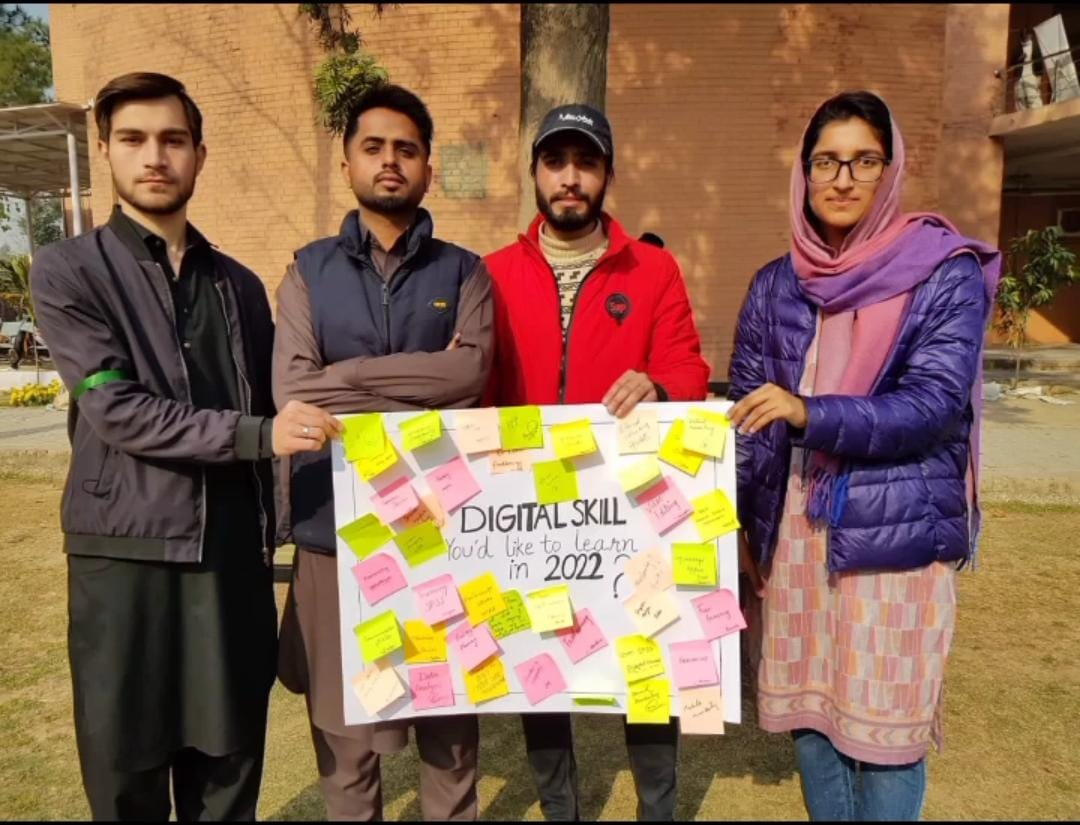
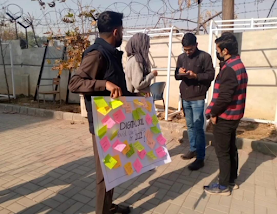
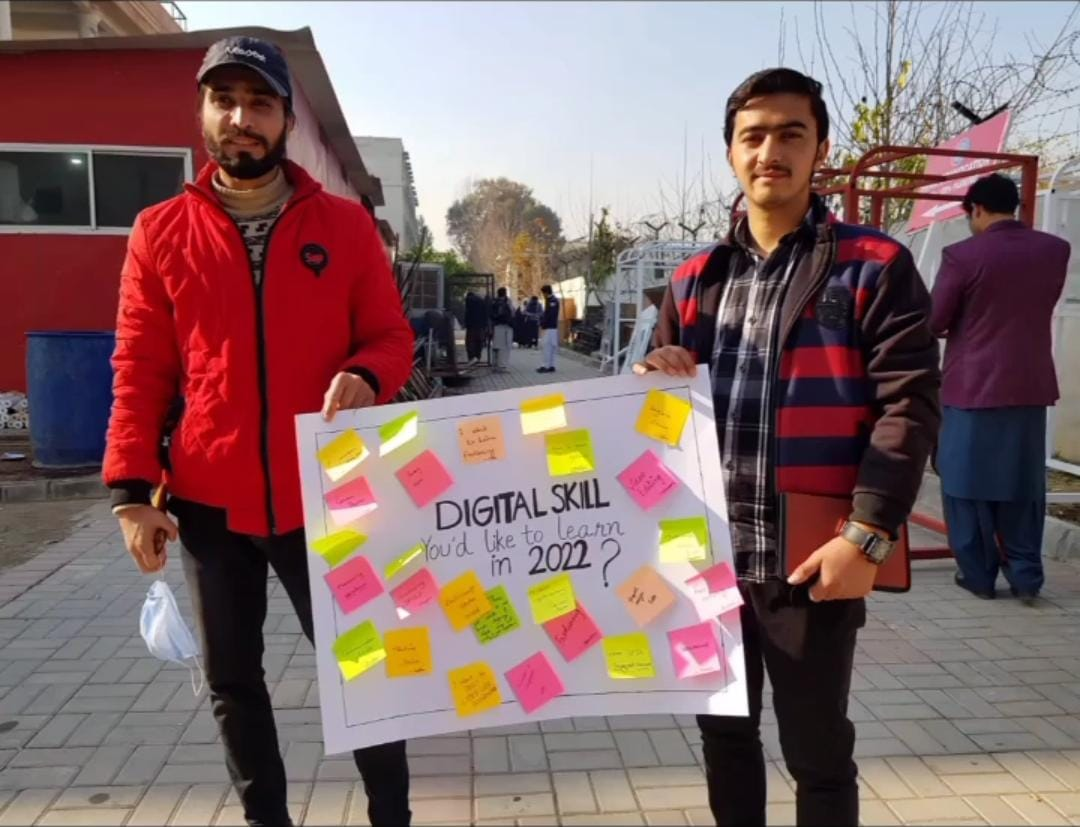




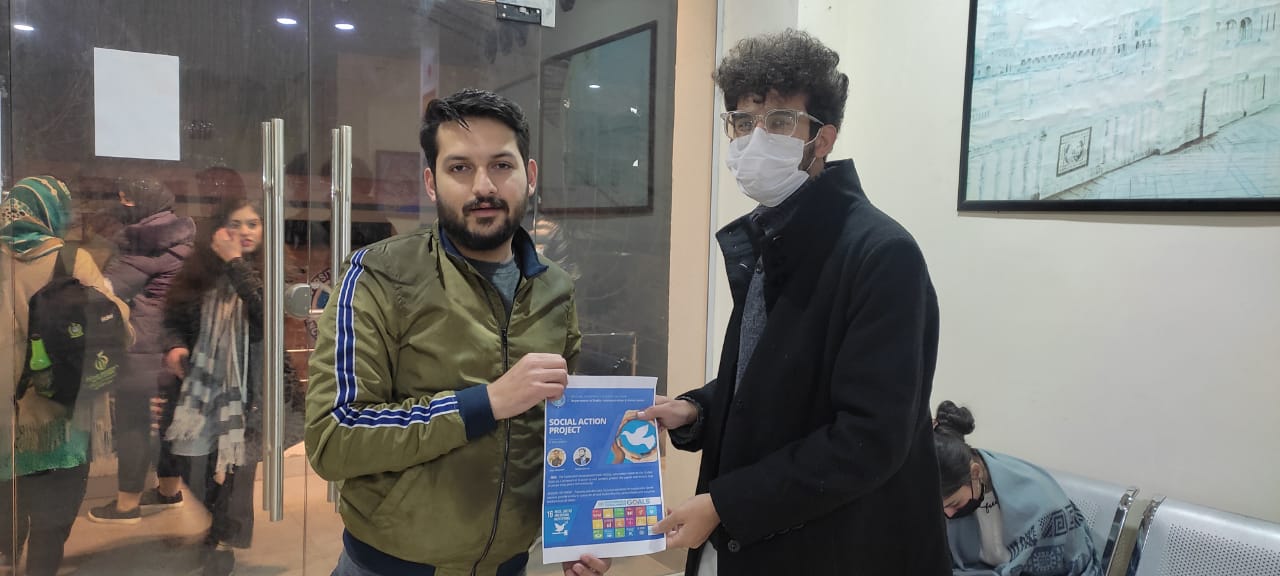

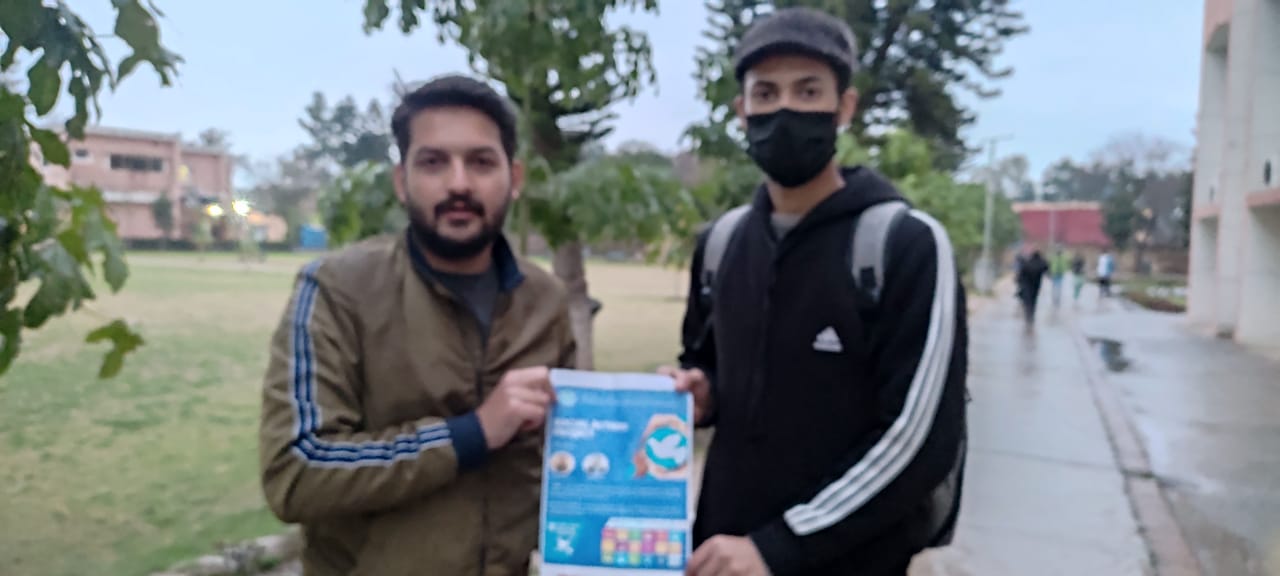

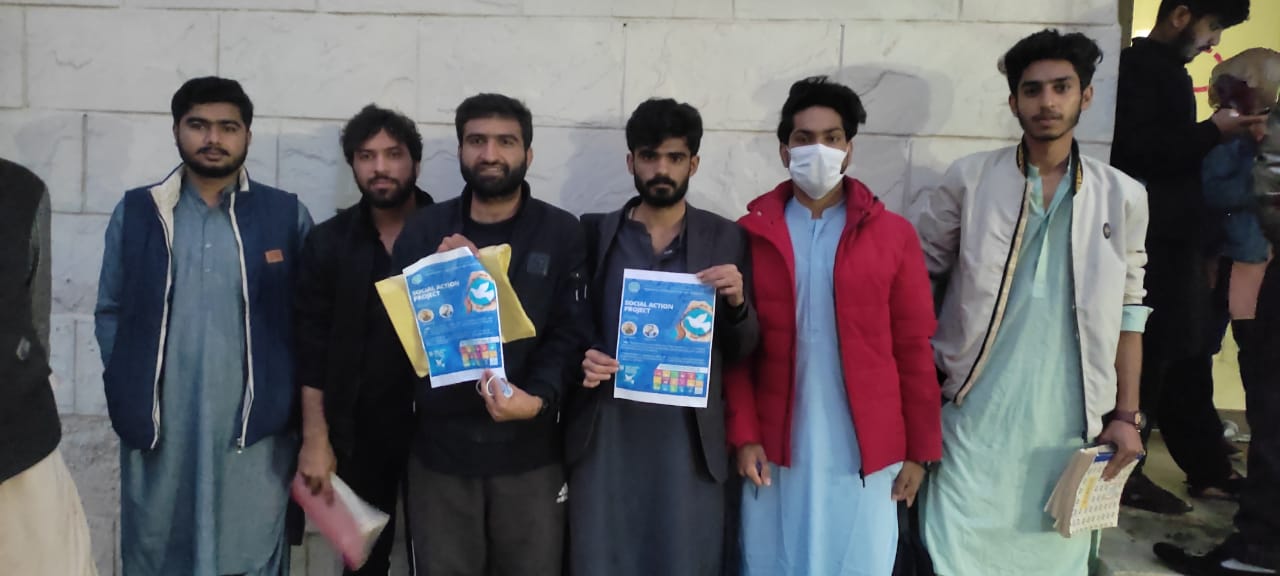









.jpeg)








